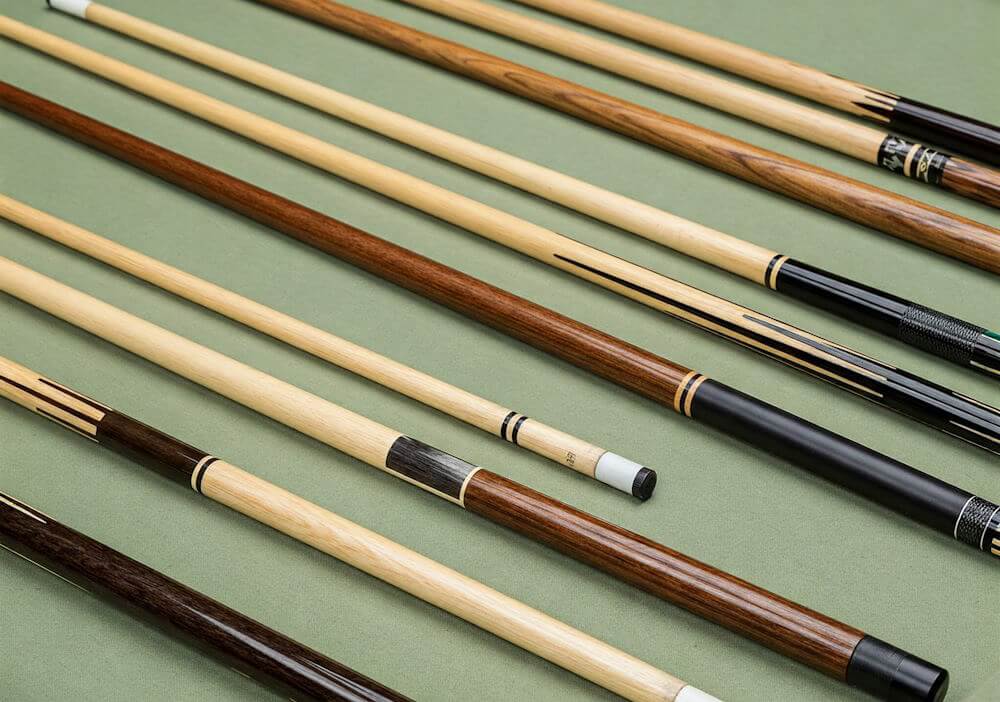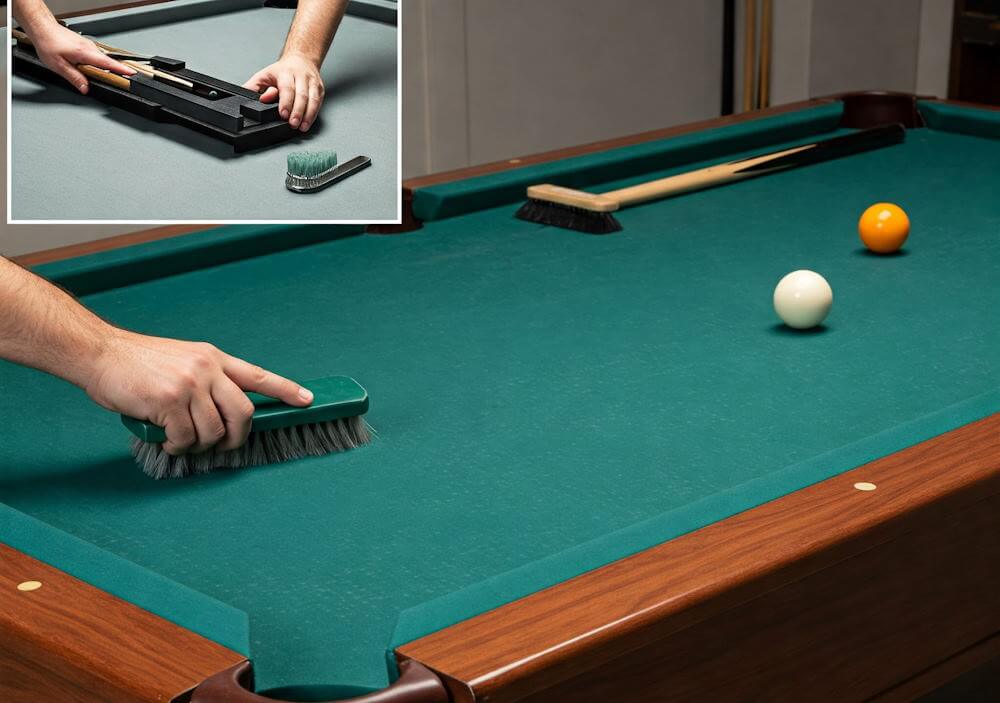Pool games, often referred to as billiards, have long captivated players around the world with their combination of strategy, skill, and entertainment. As both a popular pastime and a competitive sport, billiards not only encourages social interaction but also fosters a sense of community among enthusiasts. The allure of playing pool lies in its ability to challenge the mind while offering a relaxed atmosphere for players to enjoy.
There are several variations of pool, each with its own unique set of rules and gameplay. From the widely recognized eight-ball to the challenging nine-ball, these games differ in style and strategy, appealing to a diverse audience. This variety ensures that both novice players and seasoned experts can find enjoyment in the nuances of each format. The dynamic nature of pool games allows for endless possibilities in terms of technique and approach, further enhancing their appeal.
Engaging in pool games requires not only physical dexterity but also mental acumen. Players must carefully assess angles, control their shot strength, and anticipate their opponents’ moves. The interactive and strategic components transform billiards into much more than just a recreational activity. As players navigate through different challenges and scenarios, they develop skills that can improve their problem-solving abilities and critical thinking.
As we delve into the top five pool games that every billiards enthusiast should try, it is important to appreciate the rich history and evolution of this beloved sport. Whether played casually among friends or in a competitive setting, engaging with pool games can lead to rewarding experiences that deepen one’s appreciation for billiards. Now, let us explore the exciting world of these captivating games.
8-Ball Pool
8-ball pool is widely recognized as the most iconic billiards game, with roots dating back to the late 19th century. This classic game usually involves two players or two teams who aim to pocket their designated set of balls—either stripes or solids—before sinking the 8-ball to claim victory. The gameplay revolves around alternating turns, strategic shot selection, and cue ball control, making it both competitive and enjoyable for players of various skill levels.
The fundamental rules of 8-ball pool dictate that the game begins with a standard break shot. Players must determine which group of balls they will aim for after the first successful pocket. A player must legally hit their own balls and designated pockets. For instance, if a player sinks a solid ball, they must then continue to pocket the rest of the solid balls while avoiding the opponent’s striped ones. A key strategic element in 8-ball is the necessity of positioning the cue ball for successive shots. Understanding angles and shot power is crucial, and seasoned players often calculate the most efficient routes to re-position the cue ball after each shot.
For beginners, starting with the basic mechanics—such as how to hold and strike the cue—can significantly enhance performance. Additionally, common mistakes include focusing too much on power rather than accuracy and neglecting to plan several shots ahead. Practicing consistent stroke techniques and familiarizing oneself with cue ball behavior when hitting the object balls can reduce such errors. By employing these strategies and maintaining a clear understanding of the rules, players can enjoy a more enriching experience when engaging in 8-ball pool.
9-Ball Pool
9-ball pool is a dynamic and fast-paced variation of traditional billiards that has gained immense popularity among enthusiasts and competitors alike. In this game, players aim to be the first to legally pocket the 9-ball after striking the lowest numbered ball on the table, which adds a level of strategy and skill that differentiates it from other pool games. The objective is straightforward, but the tactics involved require keen judgment and execution. Players must carefully consider their shot selection, as each strike must begin with contacting the lowest numbered ball, making positioning crucial for subsequent shots.
Historically, 9-ball pool has evolved from its previous iterations, finding a permanent place in both recreational and competitive settings. Its acceptance as a professional sport surged in the late 20th century, with tournaments showcasing top-tier talent and drawing significant viewership around the world. Key events, such as the World Pool Association championships, feature 9-ball pool prominently, affirming its status within the billiards community. Most players are drawn to its fast-paced nature, which often results in thrilling finishes and nail-biting matches.
To enhance gameplay and sharpen skills in 9-ball pool, players should focus on fundamental techniques, such as mastering the break shot, which serves as a turning point in the match. A powerful yet controlled break can set the tone for the game. Additionally, players should learn to develop advanced strategies, including cue ball positioning to set up for the next shot. Recognizing the importance of defense in 9-ball is also crucial; often, the best offense involves leaving your opponent with difficult shots. By honing these skills and strategies, enthusiasts can not only enjoy the game at a higher level but also achieve greater success in competitive play.
10-Ball Pool
10-ball pool is a captivating variant of billiards that offers a more complex and strategic gameplay experience compared to traditional games like 9-ball. In this version, players aim to pocket the balls numbered one through ten in sequential order, which significantly raises the level of difficulty. Unlike 9-ball, where the objective is to strike the lowest-numbered ball on the table, players must follow precise numerical progression, enhancing the tactical aspect of the game.
The rules of 10-ball are straightforward yet demand a level of finesse and skill that can be both challenging and rewarding. A player wins by legally pocketing the 10-ball after first contacting the lowest-numbered ball on the table. Any shot that results in a foul, such as missing the lowest ball or failing to hit a cushion, can give an opponent the opportunity to take control of the game. This mechanism promotes strategic play, as players must think several moves ahead to outmaneuver their opponent while adhering to the strict rules.
Players seeking to excel at 10-ball should focus on honing their shot execution and strategic planning skills. Developing the ability to read the table and anticipate future outcomes is crucial. Practicing shot combinations and cue ball control will also prove beneficial, as precise positioning can significantly influence the outcome of subsequent shots. Additionally, engaging with experienced players or studying professional matches can provide valuable insights into advanced strategies and techniques.
The appeal of 10-ball pool lies in its combination of skill and strategy, making it an exciting challenge for anyone looking to elevate their game. Its uniqueness not only attracts seasoned players but also provides an opportunity for newcomers to appreciate the depths of billiards beyond the standard formats.
Straight Pool
Straight pool, also known as 14.1 continuous, is a traditional billiards game that emphasizes precision and strategic gameplay. Originating in the late 19th century, straight pool has become a cornerstone of the billiards community, revered not only for its challenging mechanics but also for its rich history. The game typically involves two players or teams, aiming to accurately pocket a predetermined number of balls to score points.
The primary objective of straight pool is to reach an agreed point total, which is often set at 100 or more, depending on the players’ preference. Each player takes turns, and when they successfully pocket a ball, they are allowed to continue their turn as long as they keep making successful shots. This adds an element of strategy, as players must carefully plan their shots while managing the positioning of the balls on the table.
One of the notable features of straight pool is that players can shoot at any ball on the table, providing them the freedom to concoct various shot strategies that can lead to a successful run. This characteristic encourages not only skillful shot execution but also advanced table management strategies throughout the game. Players must possess strategic foresight to anticipate potential challenges posed by the arrangement of remaining balls.
Historically, straight pool has played a significant role in professional billiards, serving as a popular format in tournaments and among elite players. The game has witnessed numerous legendary matches, contributing to its status in the billiards world. As players explore the depth and intricacies of straight pool, they connect with the heritage of the sport, making it a compelling choice for enthusiasts seeking to challenge themselves while appreciating its foundational significance.
5. One Pocket
One Pocket is a unique billiards game that has garnered acclaim among seasoned players for its tactical depth and cerebral approach. This lesser-known variant of pool requires players to both pocket balls and control the table with strategic finesse, making it distinct from more mainstream games. The primary objective involves players alternating turns with the goal of being the first to legally pocket eight balls into their designated corner pockets, providing an exciting blend of aggression and defense.
The rules of One Pocket are straightforward yet incorporate layers of complexity that challenge players to think critically. Each player is assigned one of the corner pockets, and all balls must be pocketed in that specific corner for the player to score. This creates a competitive dynamic where players must constantly assess not only their own opportunities but also the potential setups for their opponent. The game emphasizes skill in shot selection, positioning, and understanding table dynamics, compelling players to develop a keen sense of strategy.
To achieve success in One Pocket, players need to cultivate several critical skills. First, mastering cue ball control is paramount, as players must navigate around opposing balls while positioning themselves for future shots. Additionally, developing an acute awareness of defensive strategies is vital; a player must anticipate their opponent’s moves and create obstacles, making it hard for them to pocket balls. Moreover, calculating risks and deciding when to be aggressive or defensive are key to outperforming opponents. In its essence, One Pocket is not just about making shots, but mastering the art of tactical maneuvering. The game showcases how even a limited number of pockets can lead to a vast array of strategic possibilities, ensuring that players are continually challenged and engaged.
Common Misconceptions About Pool Games
Pool games, often regarded as an entertaining pastime, are frequently surrounded by misconceptions that can deter enthusiasts from fully engaging with the diverse array of formats available. A prevailing myth suggests that certain games, such as eight-ball or nine-ball, are merely beginner-level pursuits lacking in complexity. In reality, while these games may be accessible to newcomers, they also demand a high level of strategy, skill, and precision, making them equally compelling for seasoned players. The idea that these games exclusively cater to novices undermines their true competitive nature.
Another common misunderstanding is that pool games are predominantly reliant on luck rather than skill. This perception can discourage individuals from participating in leagues or tournaments. However, the nuances of controlling the cue ball, executing bank shots, and mastering intricate spins require extensive practice and a deep understanding of physics. Players must develop their cognitive skills alongside their physical abilities, resulting in a genuinely challenging and rewarding experience. It is crucial to appreciate that the skill involved in these games is as valuable as the inherent enjoyment derived from playing.
Additionally, some might believe that only specific pool games are legitimate or worth playing. This notion can lead to a narrow view of the billiards landscape, ignoring the rich variety of options available. Games like straight pool, cutthroat, and rotation each present unique sets of rules and challenges that can enhance one’s overall understanding of cue sports. By exploring different types of pool games, players can gain valuable insights and foster their skills, all while enjoying the camaraderie of the billiards community. Therefore, dispelling these misconceptions is vital for encouraging a broader appreciation of all facets of pool games, maximizing enjoyment and skill development.
Choosing the Right Pool Game for You
When selecting a pool game, it is essential for billiards enthusiasts to consider their skill level and personal preferences. Different games can cater to varying degrees of difficulty, making it necessary for players to assess what aligns best with their current abilities. For beginners, simpler games such as 8-Ball may provide a less intimidating backdrop, while more advanced players might find appeal in the complexity of games like 9-Ball or straight pool.
Additionally, the number of participants playing can significantly shape the choice of pool game. Some games, such as Cutthroat, are designed for three or more players and can enhance the social experience, whereas others are tailored to one-on-one competitive play. Understanding whether one prefers the camaraderie of a social gathering or the intensity of competition will greatly influence the decision-making process. Such distinctions can lead to a more enjoyable experience in the billiards arena.
Time constraints also play a crucial role in game selection. Shorter games, like 10-Ball, can be a perfect fit if players are pressed for time, while more elaborate formats may require a larger time commitment. Therefore, it is imperative to evaluate how much time is available before choosing a game to ensure all participants are engaged and satisfied.
Finally, players should not shy away from exploring new games to broaden their billiards experience. Trying different varieties not only enhances skills but also combats the potential monotony of playing the same game repeatedly. By embracing diversity in game types, players can continually challenge themselves, making their billiards journey more fulfilling and enriching.
Tips for Improving Your Game
Improving your pool game requires a combination of consistent practice, strategic training, and mental focus. Regardless of the specific variant of billiards you enjoy, there are fundamental practices that can help elevate your skills. One essential aspect to focus on is your stance and grip. A stable, balanced stance not only provides a strong foundation for your shots but also aids in maintaining accuracy. Experiment with different postures to find the one that feels most comfortable for you, ensuring that your feet are shoulder-width apart and your weight is evenly distributed.
Another crucial element in honing your pool skills is the practice of drills. Targeted drills can dramatically enhance your shot-making abilities. For example, the “nine-ball break drill” focuses on breaking the rack from various positions on the table, which helps improve your control and precision when aiming for specific pockets. Similarly, practicing “object ball drills” by placing balls in predetermined spots and attempting to pocket them in sequence can significantly refine your targeting skills. Aim to set aside time in your practice sessions specifically for these drills to foster steady improvement.
Mental focus is equally important in elevating your performance. Visualization techniques — where you mentally rehearse your shots before execution — can sharpen your concentration and bolster your confidence. Additionally, consider practicing breathing exercises to reduce anxiety and enhance your focus during competitive play. Maintaining a calm and composed mindset can be the difference between a good shot and a missed opportunity. Lastly, analyzing your games through a journal, noting what worked well and areas that posed challenges, can provide valuable insights into your progress and areas requiring more attention.
By integrating these strategies into your practice routine, you can expect consistent growth in your overall billiards performance, ultimately making your gameplay much more enjoyable.
Conclusion
In summary, the world of pool games is rich with variety and excitement, offering a little something for every billiards enthusiast. From the strategic depth of Eight-Ball to the fast-paced thrills of Nine-Ball, these top five games represent a glimpse into the diverse skill sets and entertainment that billiards can provide. Each game engages players not only in honing their individual skills but also in fostering a sense of community and togetherness.
The social aspects of playing pool are undeniable, as many of these games are enjoyed in casual settings among friends and fellow enthusiasts. They encourage interaction, friendly competition, and the sharing of strategies, which ultimately deepens the connections between players. Whether you’re a seasoned veteran or a newcomer eager to learn, the camaraderie that emerges during a game can create lasting memories and friendships.
We encourage readers to step beyond their comfort zones and explore these pool games, each with its unique rules and challenges. You may find that you have a preference for one game over the others, or perhaps you’ll appreciate the nuances of each style of play. Regardless, the journey toward discovering your favorites will be enriched by your time spent engaging with the billiards community.
Lastly, we invite you to share your own experiences and insights regarding pool games. Your stories, tips, and recommendations will not only enrich the conversation but also inspire other billiards enthusiasts to join in and explore the captivating world of pool. Together, we can celebrate the art of billiards and deepen our appreciation for this timeless pastime.




